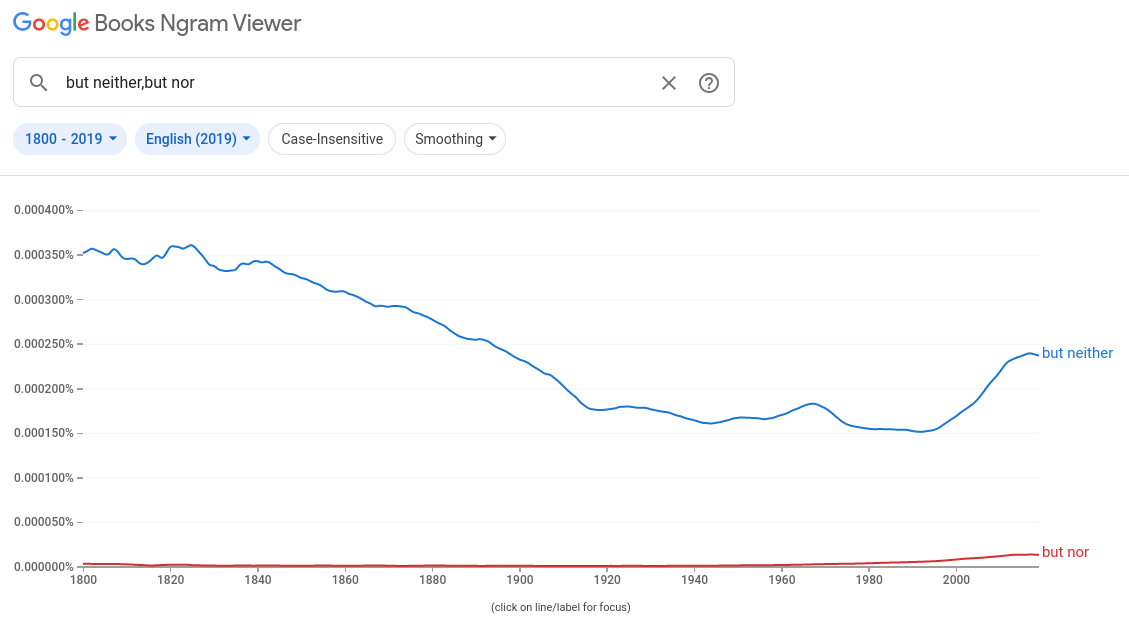Is the usage of "neither" instead of "nor" grammatical in these sentences? :
I did not believe his story, but nor did I believe hers.
He didn't deny the reports, but nor did he confirm them.
Because I found these two sentences in pages with the definition of "neither":
I did not believe his story, but neither did I believe hers.
The link to this sentence (conjunction, definition 2 for "neither")
He didn't deny the reports, but neither did he confirm them.
The link to this (the last sentence in the "More examples" section
Or just the usage of "nor" is actually correct here? Please help!
Thank you in advance!

